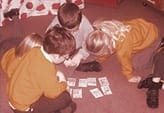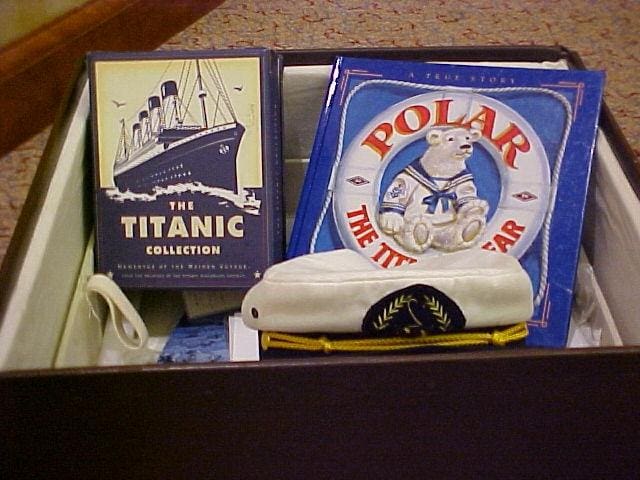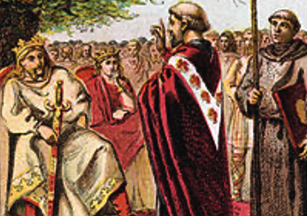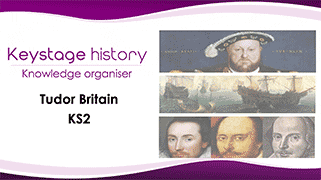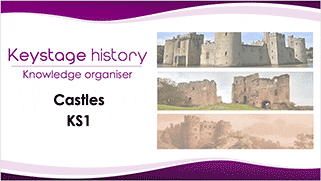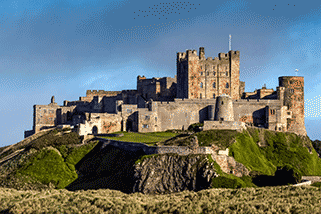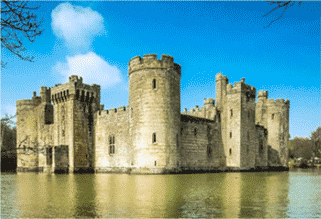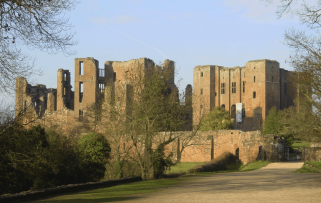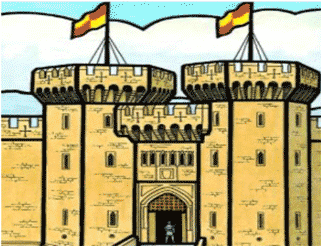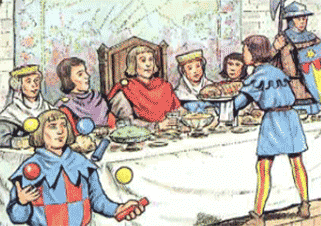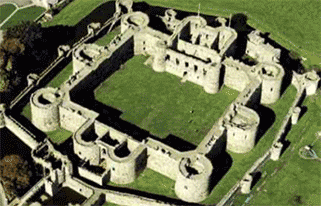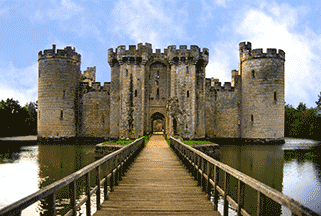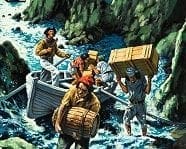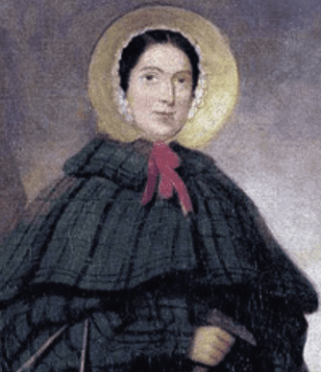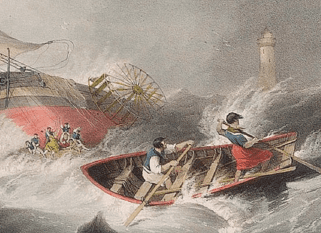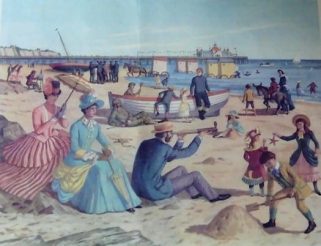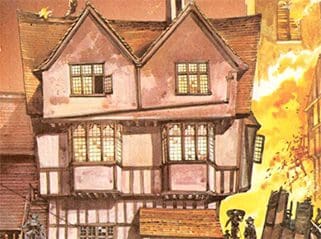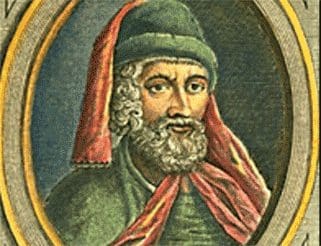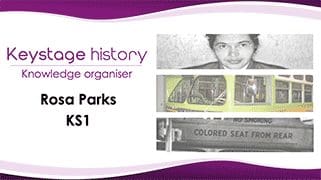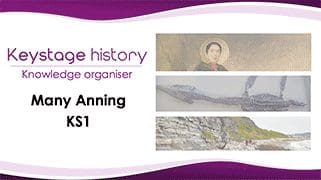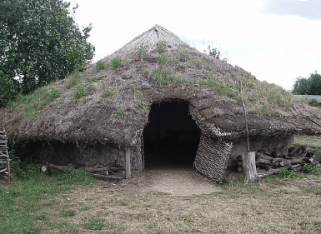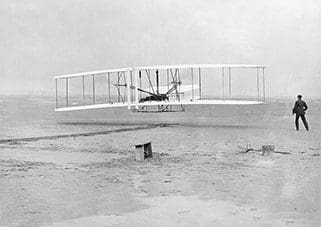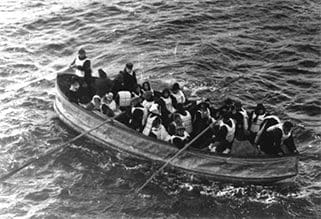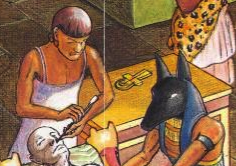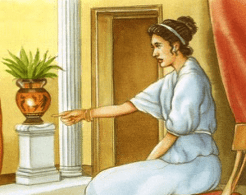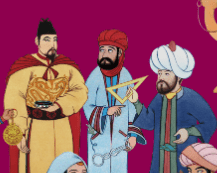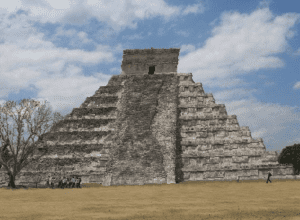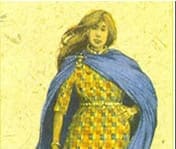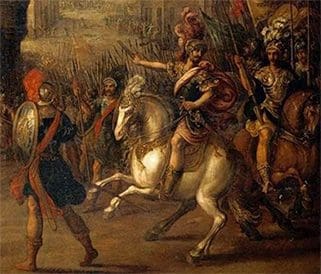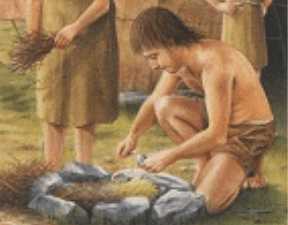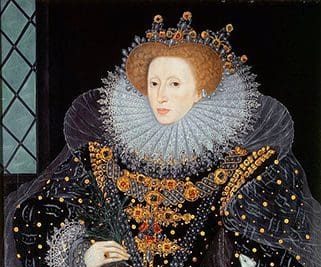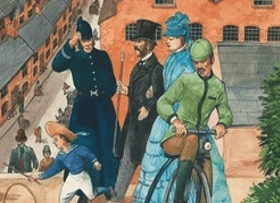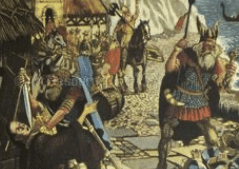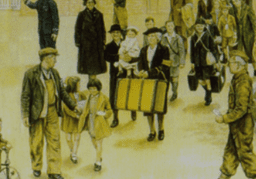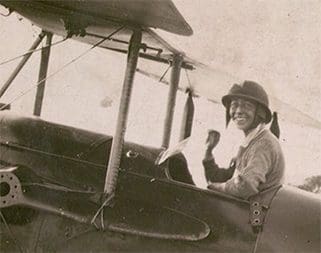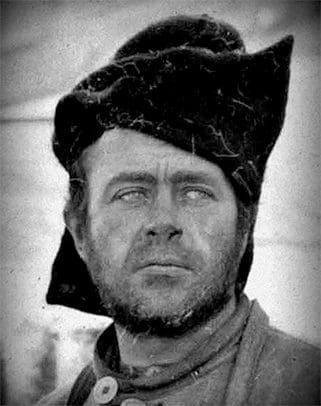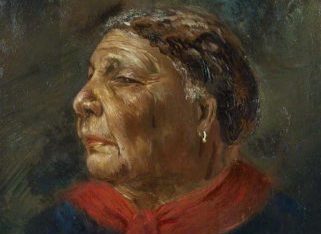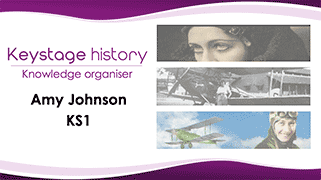Keystage history
Outstanding Lessons: Key Stage 1
If you have ever searched the internet for inspiration for your history sessions you will know how frustrating it can…
Read MoreUsing artefacts to help children’s historical understanding at Key Stage 1
Since the early 90s, artefacts have become increasingly available either to purchase or to loan. Many firms offer useful replicas…
Read MoreAnglo-Saxon end of unit quiz
The Anglo-Saxons were people who came from parts of modern-day Germany, Denmark, and the Netherlands to settle in Britain after…
Read MoreKeystage history bulletin – March 2025
Welcome to this special edition of the newsletter devoted to the thorny issue of assessment. You will also find the…
Read MoreTudor Britain knowledge organiser – KS2
You are learning about the Tudors as it was a period of history that helped to shape the Britain we…
Read MoreLatest historian’s wisdom on “Alfred the Great. How great was he?” in 2025
Source: Historical Association (membership required) Francis Leneghan is Professor of Old English at the University of Oxford. In this article…
Read MoreCastles knowledge organiser – KS1
You are learning about castles because they are one of the most fascinating buildings that have been there for hundreds…
Read MoreNew guidelines for 21st century history
In a recently-published study by the Council of Europe entitled “Quality history in the 21st century” a number of key…
Read MoreCastles – medium term planner
The main focus of this topic is the exploration of the past beyond living memory through a topic that is…
Read MoreCastles – KQ1 – What makes a castle a castle?
Having elicited pupils’ initial knowledge of castles from books film and family visits, pupils are asked to explore a number…
Read MoreCastles – KQ2 – Why did people build castles in the past?
This session is straightforward in that pupils are introduced via a short video to a variety of reasons which not…
Read MoreCastles – KQ3 – What made castles so strong?
Rather than going through all the different methods used chronologically, this really fun session focuses on one year and casts…
Read MoreCastles – KQ4 – What were medieval castles like to live in and how can we possibly know when so many are now ruins?
This five-part lesson starts with pupils in role as workers for company charged with recreating what a medieval castle would…
Read MoreCastles – KQ5 – How did castles change over time?
This lesson starts with encouraging pupils to spot differences between 3 castles to give them confidence before working in groups…
Read MoreCastles – KQ6 – How are castles used today?
Pupils have to deduce from a range of visual clues of castles they will see around them, the uses to…
Read MoreCrime and punishment – assessment task
This task is provisional and adopts a different approach to the assessment task on the site you might have tried…
Read MoreMary Anning – assessment task
Focus: Significance This simple-to-administer, uncomplicated task uses a contemporary image to stimulate pupils to think about Mary Anning’s long-term significance….
Read MoreReview of 2025 Historical Association survey
In addition to reading the OFSTED Lead Inspectors’ reports which are available online one of the ways of getting a…
Read MoreGrace Darling – assessment task
Focus: Interpretations Y1 Pupils compare contrasting images of Graces’ rescue and try to explain how and why they are different….
Read MoreSeaside – assessment task
Focus: similarity and difference and change Assessing Year 1 children’s understanding of how different going for a swim in the…
Read MoreGreat Fire – assessment task
Focus: Causation Using one large colour image as a stimulus pupils have to draw on their detailed understanding of the…
Read MoreCaxton and Bell – assessment task
Focus: characteristic features of period & using sources Y2 Using just one image which contains lots of clues, pupils have…
Read MoreMoon landing – assessment task
Focus : Using sources Pupils have to identify key features from a visual source to answer a question regarding the…
Read MoreRosa Parks knowledge organiser – KS1
Rosa Parks was an important black woman who wasn’t afraid to stand up for herself when she was treated unfairly….
Read MoreMary Anning knowledge organiser – KS1
You are learning about Mary Anning because she became very famous at a very young age. She was an expert…
Read MoreStone Age to Iron Age – assessment task
Very short diagnostic assessment in which pupils are the teachers. They have to correct a pupil’s description of the Bronze…
Read MoreWright brothers – assessment task
In this brief diagnostic assessment task , supported by 4 pictorial clues, pupils are asked to show if they understand…
Read MoreHistory curriculum review – December 2024 update
If any of you were still waiting for the promised new model history curriculum which was due to appear by…
Read MoreSinking of the Titanic – assessment task – looking at consequences and change
This task asks pupils to consider consequences of the disaster and changes over time arising from it Assessment task and…
Read MoreFlorence Nightingale – assessment task
Focus: Change and significance This task offers pupils 3 carefully chose images to support their understanding of the achievements of…
Read MoreAncient Egypt – assessment task – The afterlife
Key Elements: ideas, attitudes and beliefs This assessment tasks focuses on a single picture. Pupils are asked how the image…
Read MoreAncient Greece – assessment task – Life for women in Ancient Greece
This is a Year 6 task which focuses on Key Element 2a : characteristic features of life for men women…
Read MoreAnglo-Saxons – assessment task – What were the main changes that took place in Anglo-Saxon England?
Focus: significance and change Using 3 images to help you, what were the most important changes that took place in…
Read MoreEarly Islamic Civilisation – assessment task – Why was life in 10th century Baghdad was so significant
Using two contrasting illustrations to help them, pupils have to explain why life in 10th century Baghdad was so significant….
Read MoreMayan civilisation – assessment task – What can we tell about Mayan society 1,000 years ago?
Focus skill/concept: Understanding characteristic period features and cultural diversity Using 3 images pupils are set the task to explain what…
Read MoreRoman Britain – assessment task – interpretations of Boudicca
Focus: interpretations Another Year 4 task in which pupils have to compare two unseen illustrations from books about Boudicca. Having…
Read MoreRoman Britain – assessment task – Why did the Romans invade?
Focus: causation Short written explanation or, for some, the completion of two speech bubbles. What did the Romans / Claudius…
Read MoreRoman Britain – assessment task – Roman legacy
Assessing pupils’ understanding of the legacy of the Roman Empire on life in Britain This task is designed to elicit…
Read MoreStone Age to Iron Age – assessment task – changes from Stone Age to Iron Age
Focus: sequencing This Y3/4 task is highly visual and entails simple sequencing of unseen images followed by reason why changes…
Read MoreTudor Britain – assessment task – What can we learn about the way Elizabeth ruled the country from portraits
Focus: evaluation of sources Children work on an unseen portrait after the teacher has read out the caption which explains…
Read MoreVictorian Britain – assessment task – How do we know this picture shows Victorian Britain?
Pupils are given artist’s impression of a typical Victorian scene which they have never seen before. They have to identify…
Read MoreVikings – assessment task – Depictions of the Vikings
Focus: historical interpretation After looking at similarity and difference between two depictions of the Vikings, pupils then offer reasons why…
Read MoreWW2 – Assessment task – How do we know that this picture shows England at the beginning of the Second World War?
Focus: characteristic features of life for men, women and children Once again based on a very detailed and colourful artists’…
Read MoreAmy Johnson – assessment task – Can you explain why Amy Johnson was so important?
The children are given the task sheet containing three pictures and the question. Each has been included for a particular…
Read MoreToys; old and new – assessment task
Focus concept: Making deductions/ similarity and difference This task is designed to be non-threatening and to be carried out in…
Read MoreScott of the Antarctic – assessment task Y2
Focus concept: Causation The first task serves as a more gentle introduction to the idea of cause by looking at…
Read MoreMary Seacole – Assessment task – Assessing pupils’ understanding of the work of Mary Seacole
Target concepts: characteristic features of the period and significance This task is designed to elicit pupils’ understanding of the contribution…
Read MoreUsing story in your history teaching at KS2 – 10 top tips
I’ve just finished watching one of the more powerful of the Historical Association’s podcasts on the subject of story telling…
Read MoreGood practice, according to OFSTED
In a lesson on developments in farming and technology in the Iron Age, the teacher used a series of short…
Read More10 step guide to strengthening your history teaching
1. Ensure all topics are linked and logically sequenced At the planning stage make sure all topics are carefully linked…
Read MoreAmy Johnson knowledge organiser – KS1
You are learning about Amy Johnson because she was a very famous British pilot who flew her plane, called Jason,…
Read More
